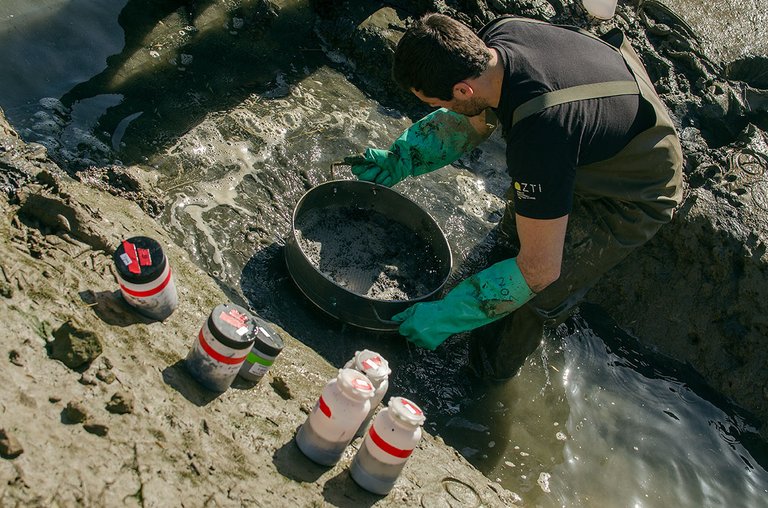AZTI warns that the seas of the European Union are far from achieving Good Environmental Status

AZTI reports that an innovative study carried out with European Union funding has revealed structural deficiencies in marine protection and calls for urgent action to avoid irreversible damage to ecosystems.
This research is part of the European GES4SEAS project, which is coordinated by the AZTI technology centre. It explains that more than ten years have passed since the entry into force of the Marine Strategy Framework Directive. Thus, the objective of the research has been to evaluate the degree of fulfillment of the objectives established at that time.
To this end, they analysed the 11 descriptors defined by the Directive, such as biodiversity, fisheries, litter, underwater noise, eutrophication, trophic chains, seabed, etc. The results show that human pressures, in particular overfishing, pollution, invasive species and climate change, continue to act cumulatively and that the response to them is not well coordinated and ineffective.
In some regions, such as the Baltic Sea and the North Sea, the results are better. In fact, they have greater follow-up and governance in these places, thanks to the agreements: HELCOM Helsinki Convention for the Protection of the Baltic Sea and OSPAR Oslo-Paris Convention for the Protection of the North-East Atlantic. On the contrary, in other areas, particularly in the eastern Mediterranean, there are large data gaps that severely limit the capacity to take action.
AZTI recalls that, since its entry into force in 2008, the Directive requires Member States to assess the state of their marine water every six years and to design plans to achieve or maintain a good environmental status. The review has now shown that, despite progress in some regions, there are significant differences in the quality of data and in the way measures are implemented between countries and marine basins.
According to Ángel Borja Yerro, researcher at AZTI and coordinator of the GES4SEAS project, “the study confirms what the scientific community has been warning for years: The European Union must strengthen maritime governance, rely more on scientific evidence, and act in a coordinated and urgent manner if it is to protect its seas.”
The study group therefore calls on EU and national institutions to strengthen environmental monitoring, improve the quality and coverage of data and establish coherent policies based on scientific evidence. In fact, the conservation of marine biodiversity is essential not only for ecological balance, but also to guarantee to society the services that the oceans provide: sustainable fishing, climate regulation, employment of the marine economy and health of coastal ecosystems.
Buletina
Bidali zure helbide elektronikoa eta jaso asteroko buletina zure sarrera-ontzian











